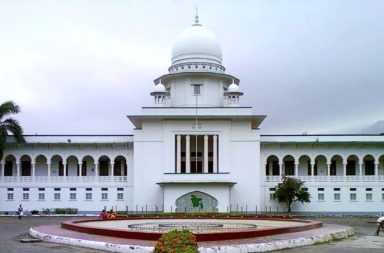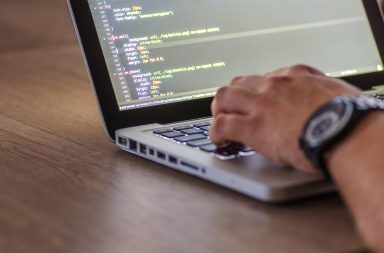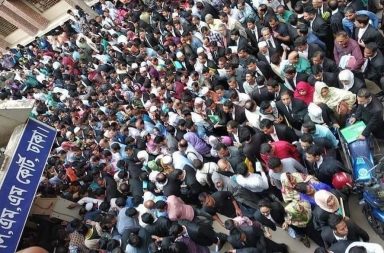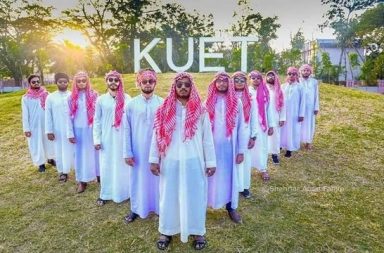By Aiman Rahman Khan
With the advent of social media, Citizen Journalism became a modern practice. Smartphones being the key players behind it, any individual can now broadcast any incident happening in their part of the world. Among them, is filming a police officer on duty. In Bangladesh, regular facebook users post photographs or videos of their encounters with the police in the streets. Many people are either greeted with a smile or harassed with threats. Mostly as a reply to harassment, many individuals tend to record videos of the event as means of restraint. Such ‘stop and search’ are usually for minor street offenses like issuance of a parking ticket. But most of these video recordings show the misconduct of police officers. This brings us to a question; Can you legally film the police while on investigation?
A Bangladeshi Facebook group ‘Desperately Seeking Dhaka (DSD)’ allows it members to post queries regarding their legal rights or anything happening in Dhaka. This group became increasingly popular among Dhaka dwellers as a platform for their wishes and complains living in this city. Pictures, videos, writings surface its wall, making it a stage in front of a diverse audience. A lot of these become ‘viral’ in a matter of hours. Hence, videos of a police officer misbehaving or acting beyond their authority become a common sight.
Although such posts get maximum shares, very few actions are actually taken. Most of the time, the person posting becomes the offender! He gets charged for breaching section 57 of the Information and Communication Technology Act 2006 (the ICT Act). The video he posted would be considered as ‘a publication of online material with threatens law and order’
This section, as amended in 2013 covers online crimes including defamation, blasphemy, and other expression-related offenses—were passed through a presidential decree, expanding police powers and increasing the penalties for violations. [1]
It gives broad powers to law enforcers against online expression. To add more to the restriction, the draft Digital Securities Act 2016 promises to create multiple offenses as a supplementary to the previous Act. Section 19(2) proposes to make an offense out of any publication in electronic form which is ‘untrue or obscene, or which distorts or pollutes human mind, causes loss of standing or social demotion to someone’.[2]
A Citizen Journalist may be considered to be a journalist without a professional designation. However unprofessional they may be, social media has empowered them to stand up against unfairness. But, under the Special Powers Act 1974, a journalist may face imprisonment of up to 120 days of up to 120 days without trial—for stories that are critical of government officials or policies.
In the worst possible outcome, the publisher may also be charged with the offence of Sedition for uploading video of the police. According to section 124A of the Penal Code 1860, Whoever by words, either spoken or written, or by signs, or by visible representation, or otherwise, brings or attempts to bring into hatred or contempt, or excites or attempts to excite disaffection towards, the Government established by law shall be punished with [ imprisonment for life] or any shorter term.[3] Also if such a video can be established as a purpose of terrorism, he may face an imprisonment of 14 years! According to Section 13 of the Anti Terrorism Act 2009, instigation of terrorist activities by distribution of information in electronic medium is an offense.
Rights & Duties of a person filming and uploading on the internet:
The Constitution of Bangladesh is the Supreme law of the land. It gets primacy over every other laws in Bangladesh. Article 39 of the Constitution has recognized a citizen’s freedom of thought and conscience, i.e, freedom of speech and expression. It has guaranteed press freedom which is no longer limited to print media, but disseminating news online.
Under Section 2 of Bangladesh Broadcasting Act, 2003, such a person may be considered as a “community broadcaster”. A community broadcaster according to this Act is any broadcaster who operates on a non-profit basis, serving a particular community by reflecting the interests and needs of that community.
Such person may also be protected under Article 19 of the International Covenant on Civil and Political Rights (ICCPR). The Article states; Everyone shall have the right to hold opinions without interference. It also states that Everyone shall have the right to freedom of expression; this right shall include freedom to seek, receive and impart information and ideas of all kinds, regardless of frontiers, either orally, in writing or in print, in the form of art, or through any other media of his choice.
As a citizen of Bangladesh, everyone has the right to protect the law to enjoy being protected by the law. Therefore, a citizen may not interfere with a police investigation with the intention to obstruct it. Section 34 of the Police Act empowers Police officers to impose a fine not exceeding fifty taka or 8 days imprisonment for causing inconvenience, obstruction, annoyance, risk, danger or damage in the streets.
According to section 18 of the Dhaka Metropolitan Police Ordinance, 1976, all persons shall be bound to conform to the reasonable directions of a police-officer given in fulfillment of any of his duties under this Ordinance. Section 186 of the Penal Code 1860 states that Whoever voluntarily obstructs any public servant in the discharge of his public functions, shall be punished with imprisonment of either description for a term which may extend to three months, or with fine which may extend to five hundred taka, or with both.
Can you film the police elsewhere in the world?
The practice of filming is widespread in the West. Following are the three instances out of many which show how it is perfectly legal and accepted around the world:
- In the case of Gaymon et al v. Borough of Collingdale, the liability was on the police officer for interfering with lawful citizen video recording his misconduct. This case proved how the US courts prioritized the freedom of expression mentioned in their Bill of Rights.
- Section 33(2) of Kerala Police Act of India allows public to keep electronic records. It states that No Police Officer shall prevent any member of the public from lawfully making any audio or video or electronic record of any Police action or activity carried out in a public or private place.”
- In the UK, the Metropolitan Police Guidelines clearly suggests, “police have no power to stop them filming or photographing incidents or police personnel”.
Video recordings by citizens have proven to be indispensable in bringing to light instances where the police unfortunately misused their powers. Although no express provision prohibiting it, it is needless to say filming an investigation is legal unless done with mischief. The Dhaka Metropolitan Police itself launched a special initiative of making its officers wear body cams to ensure accountability. This is an appreciative step which opens a door for amendments to the existing laws of the country.

Reference
[1] Freedom House, ‘Bangladesh’, Freedom of the Press 2015 [available on https://freedomhouse.org/report/freedom-press/2015/Bangladesh] [2] Ahmad, Zaker, Legal Aspects of Citizen Journalism in Bangladesh (December 30, 2016). Available at SSRN: https://ssrn.com/abstract=2943470 [3] Penal Code 1860 (Act no. XLV of 1860) [available at http://bdlaws.minlaw.gov.bd/print_sections_all.php?id=11]


